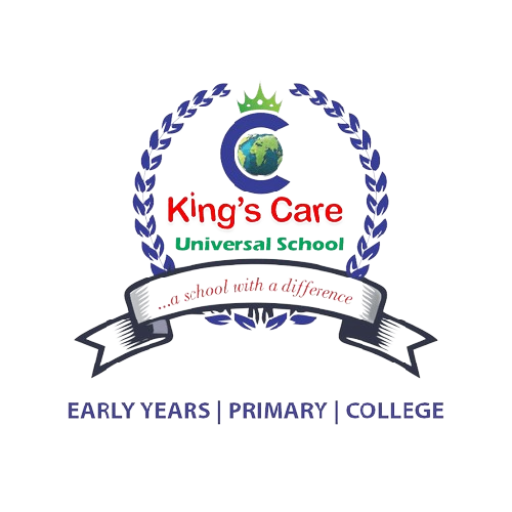Explanation of the Digital Divide in Education

The digital divide refers to the gap between individuals who have access to modern information and communication technology (ICT) and those who do not. In the context of education, this divide manifests as disparities in access to digital tools and resources, which significantly impacts the quality of education that students receive. In Nigerian schools, this divide is evident in the varying levels of access to computers, internet connectivity, and other digital learning resources.
Importance of Technology in Modern Education
Technology plays a crucial role in modern education by enhancing learning experiences and providing students with essential skills for the 21st century. It enables access to vast educational resources, supports interactive and personalized learning, and prepares students for a digitally-driven world. Effective integration of technology in education can improve student engagement, facilitate better understanding of complex concepts, and foster critical thinking and problem-solving skills.
Overview of the Challenges Faced by Nigerian Schools
Nigerian schools face several challenges in bridging the digital divide. Many schools, especially in rural areas, lack the necessary infrastructure, such as reliable electricity and internet connectivity. Economic barriers prevent schools from acquiring adequate digital devices and resources. Additionally, there is a shortage of trained teachers who are proficient in using technology for educational purposes. Socio-cultural factors and limited government support further exacerbate these challenges, leaving a significant portion of Nigerian students without the benefits of modern educational technology.
Current State of Technology in Nigerian Schools
Limited Access to Digital Devices and Internet Connectivity
In many Nigerian schools, access to digital devices such as computers, tablets, and interactive whiteboards is severely limited. A significant number of schools operate without basic technological infrastructure, making it difficult for students to engage in digital learning. Internet connectivity is also a major challenge, with many schools lacking reliable and high-speed internet access. This limitation restricts students’ ability to access online educational resources, participate in virtual learning, and develop essential digital skills.
Disparities Between Urban and Rural Schools
The digital divide is particularly pronounced between urban and rural schools in Nigeria. Urban schools are more likely to have better access to digital devices, internet connectivity, and other technological resources. In contrast, rural schools often struggle with a lack of infrastructure, electricity, and financial resources to support digital learning. These disparities result in unequal educational opportunities, with students in rural areas being at a significant disadvantage compared to their urban counterparts.
Existing Government and Private Sector Efforts
Despite the challenges, there have been efforts by both the government and private sector to bridge the digital divide in Nigerian schools. The government has launched initiatives aimed at improving ICT infrastructure in schools, such as the National Information Technology Development Agency (NITDA) programs and the Digital Literacy Campaign. Additionally, various private sector organizations and non-profits have stepped in to support digital education. For instance, companies have donated computers, set up ICT labs, and provided training for teachers. Collaborative efforts between the government, private sector, and international partners are crucial in addressing the technological needs of Nigerian schools and ensuring that all students have access to quality digital education.
Challenges Contributing to the Digital Divide
Economic Barriers and Funding Issues
One of the primary challenges contributing to the digital divide in Nigerian schools is the lack of financial resources. Many schools operate on tight budgets that do not allow for the purchase of digital devices, software, or the establishment of robust ICT infrastructure. Additionally, the cost of maintaining and upgrading technology can be prohibitive. Limited funding from government sources further exacerbates these economic barriers, leaving many schools without the necessary resources to support digital learning.
Lack of Infrastructure and Electricity
The absence of adequate infrastructure, particularly in rural areas, is another significant challenge. Many schools lack reliable electricity, which is essential for operating digital devices and accessing the internet. Without a stable power supply, even the best technological resources become useless. Furthermore, the lack of infrastructure extends to insufficient physical spaces to house computer labs or other ICT facilities, making it difficult for schools to integrate technology into their teaching and learning processes effectively.
Inadequate Teacher Training and Digital Literacy
Effective integration of technology in education requires teachers to be proficient in using digital tools and resources. However, many Nigerian teachers lack the necessary training and digital literacy skills. Professional development opportunities for teachers are often limited, and many educators are not equipped to incorporate technology into their classrooms. This gap in teacher preparedness hinders the effective use of technology and limits students’ opportunities to engage in meaningful digital learning experiences.
Socio-Cultural Factors Affecting Technology Adoption
Socio-cultural factors also play a role in the digital divide. In some communities, there may be resistance to adopting new technologies due to a lack of awareness or understanding of their benefits. Additionally, cultural attitudes towards education and technology can influence the extent to which digital tools are embraced. Gender disparities can further complicate technology adoption, with girls and young women often having less access to digital resources and opportunities compared to their male counterparts. Overcoming these socio-cultural barriers is essential for ensuring that all students can benefit from digital education.
Strategies to Enhance Access to Technology
Government Policies and Investment in Educational Technology
Government policies and investments play a crucial role in enhancing access to technology in Nigerian schools. By prioritizing funding for ICT infrastructure and digital learning programs, the government can bridge the digital divide. Policies that support the procurement of digital devices, provide training for teachers, and improve internet connectivity are essential. Additionally, establishing clear guidelines and standards for the integration of technology in education can ensure consistent and effective implementation across all schools.
Public-Private Partnerships and Corporate Social Responsibility Initiatives
Public-private partnerships (PPPs) and corporate social responsibility (CSR) initiatives are effective strategies for enhancing access to technology. Private companies can collaborate with the government and educational institutions to provide resources, expertise, and funding. For example, tech companies can donate devices, offer software solutions, and facilitate training programs for teachers and students. These partnerships can accelerate the adoption of technology in schools, particularly in underserved areas.
Community Involvement and Grassroots Efforts
Community involvement and grassroots efforts are vital in promoting digital education. Local communities can support schools by fundraising for technology, volunteering to set up and maintain ICT infrastructure, and advocating for better educational resources. Parents, alumni, and community leaders can also play a role in creating awareness about the importance of digital literacy and encouraging students to embrace technology. Grassroots initiatives can be particularly effective in rural areas where government support may be limited.
Implementing Low-Cost, High-Impact Technology Solutions
Implementing low-cost, high-impact technology solutions can significantly enhance access to digital education. Solutions such as using mobile phones and tablets, leveraging offline educational resources, and utilizing solar-powered devices can overcome barriers related to cost and infrastructure. Additionally, open-source software and affordable internet access plans can provide students and teachers with essential digital tools. By focusing on cost-effective solutions, schools can maximize the impact of their limited resources and ensure that more students benefit from digital learning.
Case Studies and Success Stories

Examples of Schools or Regions Successfully Bridging the Digital Divide
One notable example of a school successfully bridging the digital divide is King’s Care Universal School. Over the past decade, King’s Care has made significant strides in integrating technology into its curriculum. Through strategic planning and collaboration with various stakeholders, the school has equipped its classrooms with modern digital devices and ensured reliable internet connectivity. These efforts have transformed the learning environment, making it more interactive and engaging for students.
Impact of Technology Access on Student Performance and Engagement

At King’s Care Universal School, the impact of enhanced technology access on student performance and engagement has been profound. Students now have access to a wealth of online resources, enabling them to explore subjects in greater depth and at their own pace. Interactive learning tools and educational software have made lessons more engaging, fostering a love for learning among students. As a result, academic performance has improved, with students consistently scoring higher in standardized tests and excelling in academic competitions.
Moreover, technology has facilitated project-based learning and collaborative activities, allowing students to develop critical thinking and problem-solving skills. The use of digital tools has also encouraged creativity and innovation, with students undertaking projects that integrate multiple disciplines. For instance, in the Electric Circuits Workshop, students design and build their own electronic projects, applying theoretical knowledge to practical scenarios. This hands-on approach has significantly boosted student engagement and interest in STEM subjects.
Lessons Learned from These Success Stories
The success of King’s Care Universal School in bridging the digital divide offers several valuable lessons:
- Strategic Planning and Investment: A well-thought-out plan and consistent investment in technology are crucial. King’s Care’s success underscores the importance of prioritizing ICT infrastructure and regularly updating digital resources to keep pace with technological advancements.
- Teacher Training and Support: Investing in teacher training is essential for effective technology integration. King’s Care ensured that its teachers were proficient in using digital tools and incorporating them into their teaching methods. Continuous professional development programs kept teachers updated on the latest educational technologies.
- Community and Stakeholder Engagement: Collaboration with the community and other stakeholders can significantly enhance digital education efforts. King’s Care engaged parents, local businesses, and alumni in its initiatives, securing additional resources and support for its technology programs.
- Adaptability and Flexibility: Implementing low-cost, high-impact solutions tailored to the school’s specific needs and challenges proved effective. King’s Care adopted a flexible approach, using solar-powered devices to overcome electricity issues and leveraging offline educational resources in areas with limited internet connectivity.
By learning from these strategies and successes, other schools and regions can effectively bridge the digital divide and create an inclusive, technology-enhanced educational environment.
Future Prospects and Recommendations
Long-term Goals for Technology Integration in Nigerian Education
Looking ahead, the future of technology integration in Nigerian education holds immense potential. Long-term goals include:
- Universal Access to Technology: Ensuring that every school in Nigeria has access to reliable internet connectivity, digital devices, and ICT infrastructure.
- Enhanced Digital Literacy: Implementing comprehensive digital literacy programs for students and teachers to effectively use technology for learning and teaching.
- Innovative Pedagogical Practices: Promoting the adoption of innovative teaching methods that leverage technology to enhance student engagement, critical thinking, and problem-solving skills.
- Preparation for the Digital Economy: Equipping students with the digital skills and knowledge necessary to thrive in a globalized and digitally-driven economy.
Recommendations for Stakeholders (Government, Private Sector, Communities)
To achieve these goals, collaborative efforts are essential:
- Government: Increase funding and support for ICT infrastructure in schools. Develop and implement policies that promote technology integration in education. Provide ongoing training and professional development for teachers in digital literacy and educational technology.
- Private Sector: Collaborate with schools and government agencies to provide resources, expertise, and funding for technology initiatives. Support programs that enhance digital education through corporate social responsibility (CSR) initiatives and public-private partnerships (PPPs).
- Communities: Engage parents, local businesses, and community leaders in supporting digital education initiatives. Advocate for equitable access to technology and educational resources across all communities. Foster a culture of digital literacy and innovation within local communities.
Potential Impact on the Overall Education System and Society
The successful integration of technology in Nigerian education has the potential to:
- Improve Educational Outcomes: Enhance student achievement, graduation rates, and performance in standardized tests through personalized and interactive learning experiences.
- Bridge Socio-economic Gaps: Reduce disparities in educational opportunities between urban and rural areas, and among different socio-economic groups.
- Foster Innovation and Creativity: Cultivate a new generation of innovative thinkers and problem solvers equipped with digital skills.
- Drive Economic Development: Prepare students for future careers in technology and contribute to Nigeria’s economic growth by creating a skilled workforce.
By prioritizing technology integration and addressing the challenges of the digital divide, stakeholders can collectively advance Nigerian education and empower students to succeed in a rapidly evolving digital world.
Conclusion
Recap of the Importance of Bridging the Digital Divide
Bridging the digital divide in Nigerian education is crucial for ensuring equitable access to quality learning opportunities. Access to technology enhances educational outcomes, empowers students with essential digital skills, and prepares them for success in the 21st century global economy.
It is imperative that stakeholders across government, private sector, and communities collaborate to improve technology access in Nigerian schools. By investing in ICT infrastructure, providing adequate training for teachers, and promoting digital literacy, we can create an inclusive educational environment that fosters innovation, creativity, and academic excellence.
Optimism for the Future of Education in Nigeria with Enhanced Technology Integration
Looking forward, the future of education in Nigeria holds great promise with enhanced technology integration. As schools embrace digital tools and resources, students will benefit from personalized learning experiences, interactive educational content, and opportunities for collaboration on a global scale. With continued dedication and investment in technology, Nigeria can pave the way for a brighter future where every student has the opportunity to thrive and succeed.
In conclusion, bridging the digital divide is not just a necessity but a transformative opportunity to reshape education in Nigeria and empower the next generation of leaders, thinkers, and innovators. Together, let’s commit to making technology accessible to all students and ensuring that education remains a powerful catalyst for social and economic progress.
Visit Our Website: https://kingscareschool.org/


